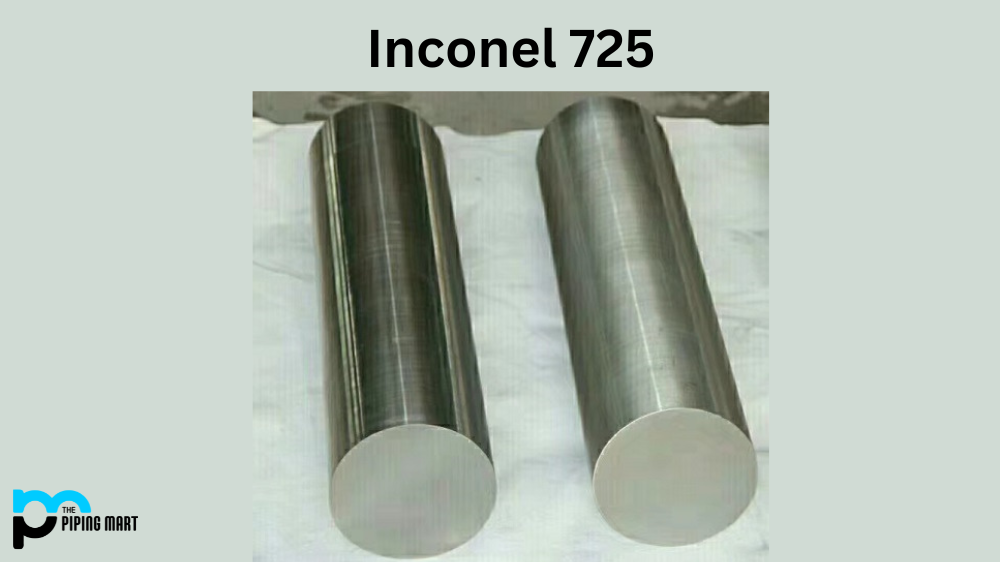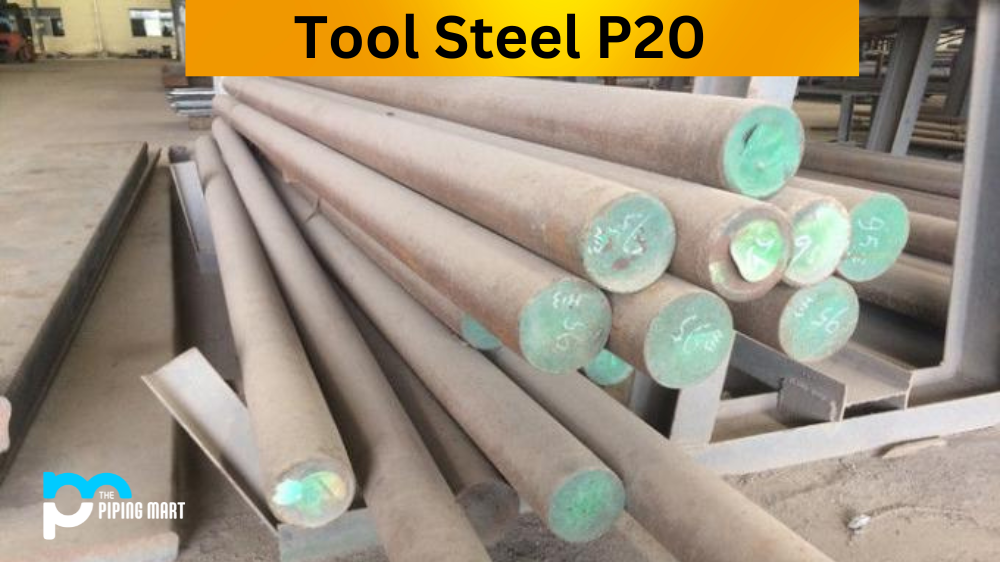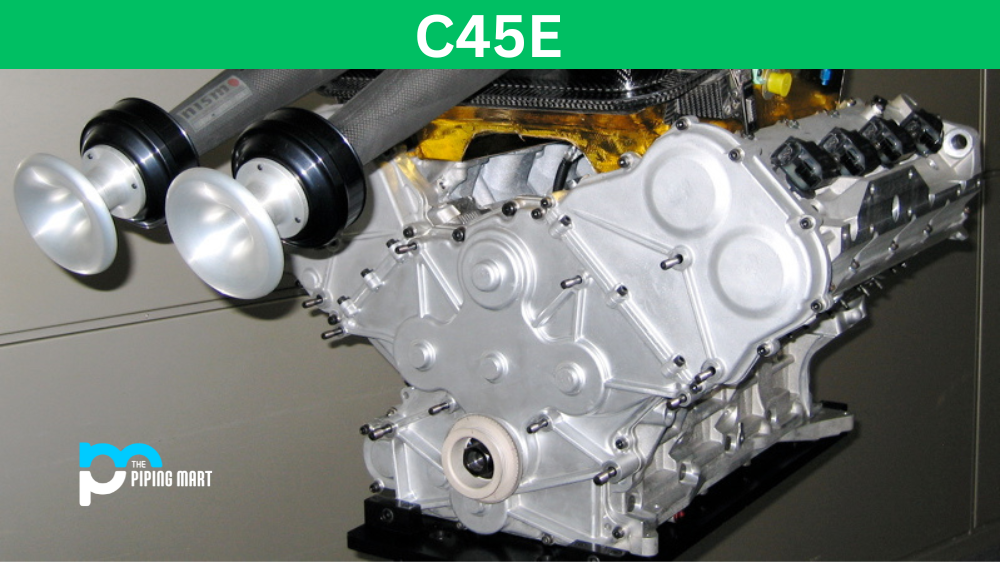UNS N07725 is a nickel-chromium alloy designed for corrosion and heat resistance. It is commonly used in aerospace, marine, and chemical applications due to its ability to maintain its properties even at high temperatures. In this blog post, we’ll take a look at the composition, properties, uses, and treatments of Inconel 725.
Inconel 725 Chemical Composition
UNS N07725 is composed of nickel (59%), chromium (19%), molybdenum (14%), iron (3.5%), titanium (2%), cobalt (1.5%), along with other trace elements including copper, manganese, sulfur, and silicon. These components give it excellent corrosion resistance and oxidation resistance up to 1900°F (1037°C). It also has good mechanical strength in both annealed and age-hardened conditions.
| Elements | Content (%) |
|---|---|
| Nickel, Ni | 55 – 59 |
| Chromium, Cr | 19 – 22.5 |
| Iron, Fe | 9 |
| Molybdenum, Mo | 7 – 9.50 |
| Niobium, Nb (Columbium, Cb) | 2.75 – 4 |
| Titanium, Ti | 1 – 1.70 |
| Aluminum, Al | 0.35 |
| Manganese, Mn | 0.35 |
| Silicon, Si | 0.20 |
| Carbon, C | 0.030 |
| Phosphorous, P | 0.015 |
| Sulfur, S | 0.010 |
Inconel 725 Chemical Properties
UNS N07725 is a nickel-chromium-molybdenum alloy that has exceptional corrosion resistance and strength. The metals used in its composition – Ni, Cr, and Mo – give it an elevated temperature strength while maintaining an extremely low coefficient of thermal expansion. Its creep rupture properties and relatively low-cost materials make this alloy widely applicable in jet engines, industrial furnaces, high-temperature machinery components and much more. Inconel 725 also offers outstanding weldability compared to other precipitation-hardening alloys, making fabrication easier and cost-effective. This versatile material has the right qualities to be well-suited for even the most demanding applications.
Inconel 725 Mechanical Properties
UNS N07725 is a nickel-chromium alloy with excellent mechanical properties and corrosion resistance. It displays impressive toughness in both high and low temperatures and maintains these qualities even when exposed to harsh industrial environments. The alloy also exhibits a combination of good metallurgical stability, notch tensile strength, fatigue properties, and creep-rupture strength. Inconel 725’s distinctive characteristics make it an ideal material for aircraft engines, seal rings, exhaust systems and other maritime components that require exceptional integrity under both normal and extreme operating conditions.
| Properties | Metric | Imperial |
|---|---|---|
| Tensile strength | 855 MPa | 124000 psi |
| Yield strength (@0.2%) | 427 MPa | 62000 psi |
| Modulus of elasticity | 204 GPa | 29600 ksi |
| Poissons ratio | 0.31 | 0.31 |
| Elongation at break | 57% | 57% |
| Hardness, Rockwell C | 5 | 5 |
Inconel 725 Physical Properties
In addition to being corrosion resistant, grade 725 has a number of physical properties that make it stand out from other alloys. It has good weldability, formability, and machinability thanks to its low coefficient of thermal expansion and high thermal conductivity. Its low electrical resistivity makes it ideal for electrical or electronic applications where current needs to be conducted efficiently without losing energy along the way.
| Properties | Metric | Imperial |
|---|---|---|
| Density | 8.3 g/cm³ | 0.3 lb/in³ |
| Melting point | 1271-343ºC | 2320-2449ºF |
Thermal Properties
| Properties | Metric | Imperial |
|---|---|---|
| Thermal expansion co-efficient (@21-100°C/69.8-212°F) | 13 µm/m°C | 7.22 µin/in°F |
Inconel 725 Uses
Due to these qualities, UNS N07725 is often used in aerospace applications such as turbine blades or exhaust systems. Due to its great corrosion resistance can also be used for chemical processes involving high temperatures or corrosive chemicals like acids or alkalis. To further increase its resistance against heat and oxidation,
Heat Treatment
Inconel 725 can be treated with heat treatment processes such as solution annealing or age hardening, improving its mechanical properties without compromising on its corrosion resistance or formability. Finally, this alloy can be machined or welded if necessary though some precautions need to be taken since welding may lead to cracking if not done correctly.
Corrosion Resistance
Inconel alloy 725 is a nickel-chromium-molybdenum alloy known for its excellent corrosion resistance. It offers excellent pitting and crevice corrosion resistance in a wide range of aggressive environments, making it well-suited for exposed components, particularly those in contact with many corrosive liquids. This material’s outstanding performance is partially due to the increased molybdenum content, which enhances pitting and crevice corrosion resistance; the chromium content adds even more protection by forming a protective oxide film on the surface. These properties make Inconel 725 an ideal choice for high-temperature and highly corrosive applications found in aerospace, chemical processing, marine, and pollution control industries.
Heat Resistance
Grade 725 is an alloy composed of nickel, chromium and iron, and thanks to this combination, it has outstanding heat resistance compared to other types of Metal. It also has moderate corrosion resistance, making it an ideal choice for many industrial applications. Inconel 725’s high-temperature strength makes it exceptionally resistant to oxidation and scaling under prolonged exposure at elevated temperatures, making it suitable for high-temperature components such as gas turbine blades and combustion chambers. This superior level of heat resistance with no limitations when exposed to various levels of environmental stress also allows Inconel 725 to be used in production equipment even in very harsh environments where high temperatures or corrosive chemicals may be present.
Machining
Machining alloy Inconel 725 presents a unique challenge as it is a metal alloy of high strength and corrosion resistance. It must be handled with extreme precision as even a slight misstep can damage the surface of the alloy, resulting in costly repair costs or even an unusable product. Fortunately, new technologies like CNC machining help ensure that operations are flawless and consistent. Combined with extended tool life and coolants, this assures that these difficult projects will produce dependable parts with superior performance.
Welding
Inconel 725 alloy welding is a speciality among welders due to its high strength at elevated temperatures and its resistance to stress corrosion cracking. It is widely utilized in aerospace components, power generation equipment, and marine applications. Properly performed welds create strong, structurally sound joints and increase the material’s lifetime utility. To get dependable results out of this stainless-steel nickel alloy, following proper welding procedures with correctly selected filler metals, gas mixtures, and heat input levels is essential. Not doing so can lead to various issues such as lack of penetration, warpage, cracking and defects. However, with a proper understanding of welding processes and parameters associated with Inconel 725 welding, skilled professionals can accomplish impressive results out of this unique alloy.
Conclusion
In conclusion, Inconel 725 is a highly versatile alloy with many uses in various industries due to its great physical properties, such as its corrosion resistance, low coefficient of expansion and high thermal conductivity. With proper heat treatment processes like solution annealing or age hardening, this alloy can also become even more resilient against heat and oxidation while still maintaining its formability, making it an ideal choice for applications requiring excellent performance under extreme conditions, such as aerospace engineering or chemical processing plants. Those looking for reliable products made from this alloy material need not look any further than Metric Metal – your trusted source for quality metals!

A passionate metal industry expert and blogger. With over 5 years of experience in the field, Palak brings a wealth of knowledge and insight to her writing. Whether discussing the latest trends in the metal industry or sharing tips, she is dedicated to helping others succeed in the metal industry.




